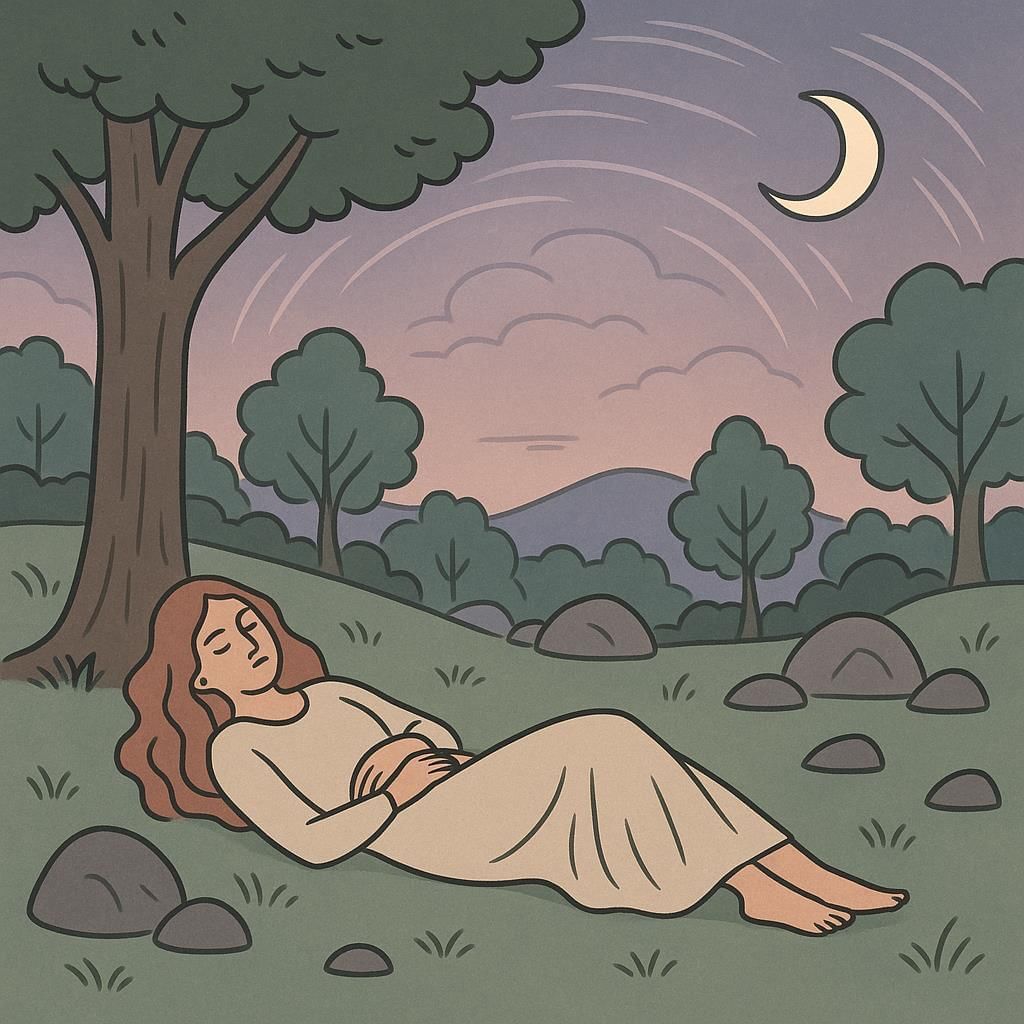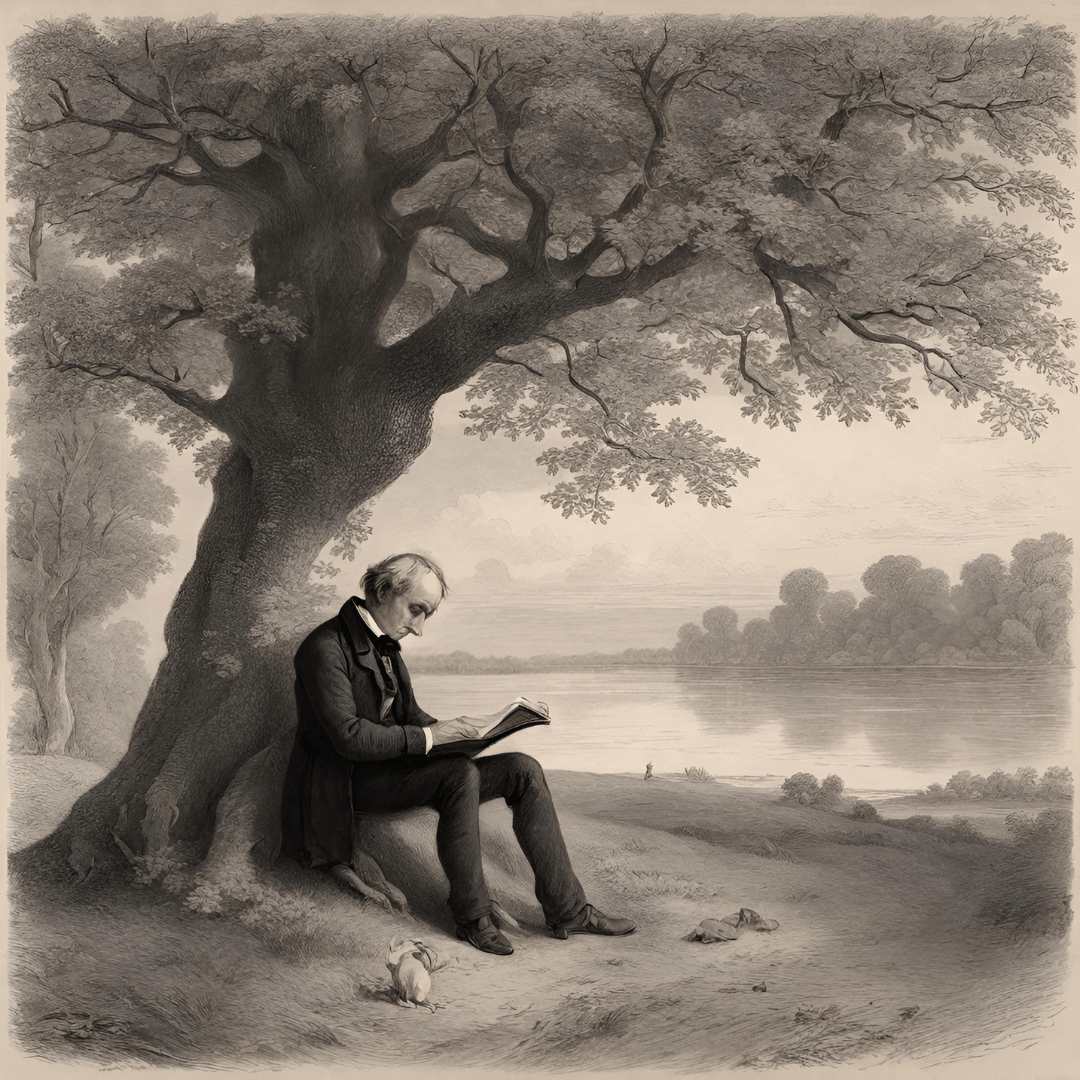Class 9 Beehive Poem Chapter 8 Question Answers - A Slumber Did My Spirit Seal

Short Answer Questions
Q1. What does the poet mean by ‘spirit’ and in what state was it?
Ans: In the poem, the term ‘spirit’ represents the poet's mind. He describes being in a state of slumber, indicating a deep sleep or unawareness, as though he is unconscious of life's realities. This suggests he feels as if he is drugged or under a spell.
Q2. What caused the slumber of the poet?
Ans: The poet was deeply in love with the girl, and her death left him in shock and sadness. He experienced intense grief that overwhelmed his mind. The depth of his sorrow was so profound that it overpowered his consciousness, leading him into a state of slumber.

Q3. What changes did the slumber bring in the poet’s feelings?
Ans: The poet initially felt shocked and saddened by the death of his beloved. However, the slumber brought him a sense of peace. He came to understand that his beloved had become a part of Nature and would always be present around him.
Q4. Who does not feel any human fears? Why?
Ans: The poet experiences no human fears and feels a profound sense of peace, as if his soul is in a deep slumber. His love for Lucy is so intense that he wishes to spare her the trials of aging that affect all humans. In his eyes, she is untouched by the passage of time or the harshness of nature, elevating her to a state beyond mortality. To him, she embodies a supernatural essence, free from earthly concerns.
Q5. Explain the line: “The touch of earthly years”. Who would not feel the touch of earthly years?
Ans: The phrase “the touch of earthly years” describes the negative effects of old age that humans experience, such as loss of energy, illness, and eventual death. The poet's beloved, Lucy, is exempt from these struggles because she has passed away, meaning she will not endure the hardships that come with aging.
Q6. How does the poet come out of his ‘slumber’?
Ans: The poet emerges from his slumber when he realises that with Lucy's death, she is no longer a human being and is as vulnerable to death as anyone else. She has transformed into an immortal being, and he perceives her as a supernatural goddess. This profound understanding awakens him from his unconscious state.
 Poet William Wordsworth
Poet William Wordsworth
Q7. How does the poet react to his loved one’s death?
Ans: Initially, the poet is shocked by the death of his beloved, experiencing a deep sense of bitterness and grief. However, as he reflects, he finds a sense of peace. He feels content knowing that the passage of time will no longer impact her. She has become part of Nature and is liberated from the struggles of human life.
Q8. The poet does not refer to the death of Lucy. How does he reveal that she is no more?
Ans: The poet does not directly mention that Lucy is dead. However, he clearly indicates her absence by describing her as completely still, motionless, and inactive. He also notes that she has lost her senses, as she neither hears nor sees anything. This portrayal suggests that she is no longer alive.
Q9. How does the poet imagine “her” to be after death?
Ans: The poet imagines her to be at peace after death. She is in a deep sleep, free from the burdens of worldly affairs and the passage of time. Now, she is part of nature, as indicated by the lines: 'No motion has she now, no force; She neither hears nor sees.'
Q10. What does the poet mean by “earth’s diurnal course”? How has “she” become a part of earth’s diurnal course?
Ans: The phrase “earth’s diurnal course” refers to the daily rotation of the earth on its axis, which creates the cycle of day and night. The poet suggests that Lucy has become an integral part of the earth following her death. By mingling with the earth, she now naturally participates in its daily rhythm, similar to the stones, rocks, and trees.
Q11. What is the relation of Lucy with rocks, stones, and trees?
Ans: After her death, Lucy has become part of Nature by mingling with the soil. This means she is now connected to the earth and is a part of everything around her, including rocks, stones, and trees. In essence, she has transformed into a component of the natural world.
Long Answer Questions
Q1. What is the central theme of the poem?
Ans: The poem explores the theme of loss due to the death of a loved one, highlighting the deep sorrow that follows. The poet, Wordsworth, expresses his profound pain over Lucy's death. However, he conveys the notion that while death may physically separate us from our loved ones, they continue to exist around us through nature. Wordsworth immortalises Lucy by suggesting that she lives on in the natural world after her passing. Thus, the death of a loved one should not leave us in despair.
Q2. Give a brief summary of the poem ‘A Slumber Did My Spirit Seal’ in your own words.
Ans: In the poem 'A Slumber Did My Spirit Seal', the poet conveys his emotional numbness following the death of his beloved. He describes how their deep love had made him feel immune to the fears and worries of life. Initially, he is unaware of the harsh realities surrounding him. However, as time passes, he comes to terms with the fact that she is no longer alive. Despite this painful truth, he finds comfort in the thought that she has become a part of nature. She now lies in the earth, participating in its daily cycle, free from the suffering of human existence.
Q3. How did Lucy’s death affect the poet? What does it reveal about his attitude towards her?
Ans: Lucy’s death had a profound effect on the poet. He initially felt a sense of emotional detachment, as if he were in a slumber, indicating his deep attachment to her. This emotional state suggests that he was unaware of the reality of death and its inevitability. The poet's attitude towards Lucy is one of reverence; he perceives her as a being untouched by the ordinary experiences of aging and suffering. He elevates her to a near-divine status, viewing her as a supernatural entity, immune to the effects of time, and thus, he sees her as almost goddess-like.
Q4. How does the poet reveal that Lucy is dead without using the words ‘death’ or ‘dead’? What according to him, has happened to Lucy after her death?
Ans: The poet subtly conveys Lucy's death without explicitly using the words 'death' or 'dead.' He depicts her as lacking any life or motion, lying still and inactive. Her senses of sight and hearing have also vanished. The poet describes her as being merged with the earth, indicating her physical integration with nature. Lucy has become an inseparable part of the earth's diurnal course, symbolising her eternal connection with the natural world, akin to rocks, stones, and trees. This transformation after her passing brings the poet a sense of tranquility, highlighting his belief in her everlasting presence within the cycle of nature.
|
180 videos|975 docs|124 tests
|
FAQs on Class 9 Beehive Poem Chapter 8 Question Answers - A Slumber Did My Spirit Seal
| 1. What is the central theme of the poem "A Slumber Did My Spirit Seal"? |  |
| 2. How does the poet use imagery in "A Slumber Did My Spirit Seal"? |  |
| 3. What is the significance of the phrase "A slumber did my spirit seal"? |  |
| 4. How does the poem reflect the Romantic era's characteristics? |  |
| 5. What is the tone of "A Slumber Did My Spirit Seal"? |  |





















